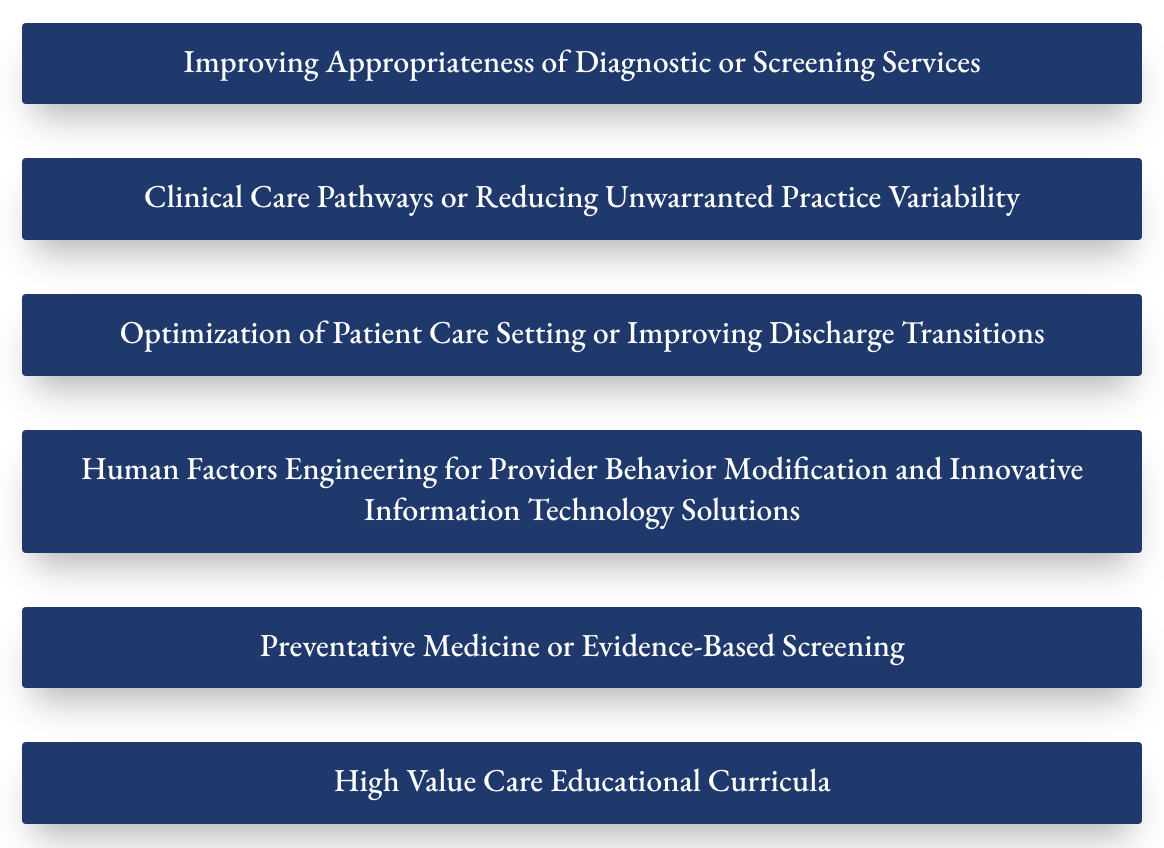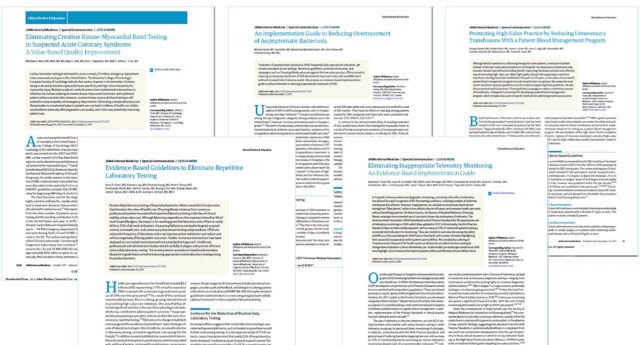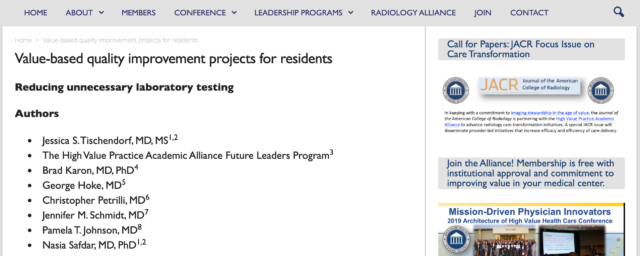| Table 1. Proposed laboratory tests with appropriateness improvement targets. | |
| Laboratory test | Appropriateness Improvement Target |
| Amylase | Replace with lipase for diagnosis of acute pancreatitis. |
| Antinuclear Antibody and Sub-Serologies | Do not test for ANA sub-serologies in the setting of negative ANA and low pretest probability of autoimmune disease. |
| Basic Metabolic Panel | Eliminate repeated testing in the setting of clinical and laboratory stability. |
| Complete Blood Count | Eliminate repeated testing in the setting of clinical and laboratory stability. |
| CK-MB | Eliminate in favor of troponin for diagnosis of acute coronary syndrome. |
| Clostridiodes difficile Testing | Do not test asymptomatic patients and do not perform test of cure. Routine testing in infants is not recommended. |
| Erythrocyte Sedimentation Rate | Eliminate in favor of C-reactive protein in most cases of acute inflammation, except low-grade bone and joint infections and some autoimmune diseases. |
| Fecal Lactoferrin | Do not use both fecal lactoferrin and calprotection routinely given similar test characteristics. |
| Fecal Occult Blood Testing | Eliminate use in the evaluation of suspected acute gastrointestinal bleeding. |
| Folic acid | Favor empiric supplementation over testing. If testing is necessary, serum folate is favored over RBC folate. |
| Gastrointestinal Pathogen Nucleic Acid Amplification Panels | Limit use to those with a recent travel history, those with increased risk of severe disease and those with symptoms persisting beyond seven days. |
| Helicobacter pylori Serology | Eliminate use of H. pylori serology in the evaluation of active infection. |
| Heparin-Induced Thrombocytopenia | Avoid testing for patients with low probability for HIT. |
| Hepatitis A virus screening | In otherwise healthy individuals known to be immune, avoid measuring HAV antibodies in the diagnosis of acute hepatitis. |
| Hepatitis B virus screening | Screen high risk individuals with Hepatitis B surface antigen, surface antibody, and core antibody only. |
| Hepatitis C viral load and genotype | Limit HCV viral load testing to diagnosis of acute and chronic HCV infection and monitoring of an antiviral regimen. Genotypes are only necessary when treatment with a non-pan-genotypic agent is planned. |
| Legionella pneumophila Urinary Antigen Testing | Avoid use in typical community-acquired pneumonia. |
| Paraneoplastic panel | Avoid in cases with low pretest probability of paraneoplastic encephalitis. |
| Peripheral Blood Smear | Optimize automated systems to avoid unnecessary triggers for hematopathologist review. |
| Rapid Antigen Testing for Group A Streptococcal Pharyngitis | Avoid testing in the setting of obvious viral illness. In adults, routine back-up culture is not recommended. Test of cure not routinely recommended. |
| Tacrolimus Level | Optimize timing of drug levels in the inpatient setting. |
| Thrombophilia Work-up | Eliminate for most inpatients, for those with provoked venous thromboembolism, and among those for whom indefinite anticoagulation is otherwise indicated. |
| Total Serum Triiodothyronine and Free T3 | Not recommended for diagnosis of thyroid disorders except in pregnancy, TSH-secreting pituitary adenoma or follow up after administering medications or radioactive iodine ablation. |
| Type and Screen | Avoid retesting in < 3 months (unless pregnant or transfused) and reduce use in the perioperative setting for non-anemic patients undergoing low-risk procedures. |
| Vitamin D Deficiency Screening | Screen only high risk patients with 25-hydroxyvitamin D. Avoid 1,25-dihydroxyvitamin D in the absence of hypercalcemia or renal insufficiency. |





